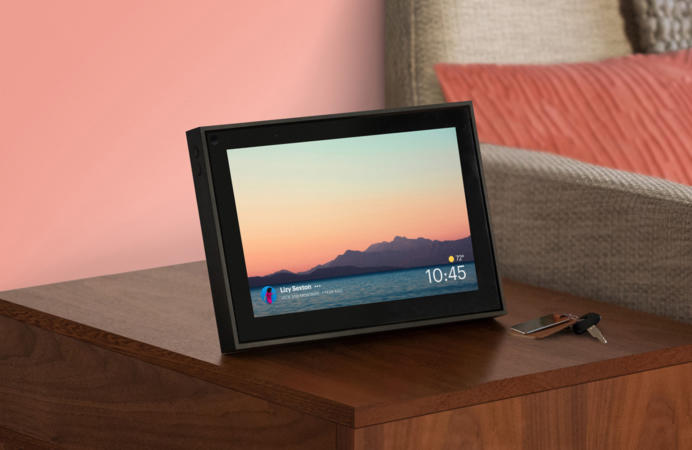I’ve been using the Amazon Echo Show in my home for roughly the last six months. My kids love it as they can two-step and cowboy boogie to Blanco Brown anytime they like, so long as it’s not quiet time.
It’s great for calling up music and video clips, news and the weather, but with the prevalence and growth of technologies like Apple’s Facetime, it does leave a lot on the table with its video calling features. I can ‘drop in’ (place a video call) to my home and see a live video feed using the Alexa app, but I couldn’t tell you how to place a video call from the Echo show. Does it even have that capability? I could Google it, but the fact that I have to should say it all.
This is where Portal by Facebook shines. Whether intentional or not, Facebook appears to be only highlighting the media features Portal supports like Spotify and Amazon Prime on the edges and going hard on the features that allow you to stay connected.
Andrew Bosworth, hardware boss at Facebook, said during a recent briefing that video calling is the “killer feature” for home tech in the future and if any device doesn’t support it, they’d be irrelevant. With the ability to place a call to and from Messenger and WhatsApp, Portal is very nicely done.
Married to Alexa? You still get access to Alexa Skills on Portal.
It truly is an amazing device. For traveling parents and distant family members who want to feel right at home, it outshines every other device in the category. Some features allow you to watch Facebook Watch videos in real-time with your remote friends that seem cool. The audio dips whenever someone on the line talks so you can be heard, and I can see the remote party in the picture-in-picture screen. It’s pretty dope, but I’m just not sure how much I’d ever use it in real life. If a piece of video content is good, I don’t want your commentary stepping all over it… I want you to shush.
Portal employs a lot of AR on this device, so you can video chat using Instagram-like filters, virtual hats and sunnies. When you go into Story Time mode while reading a story to your kids while you’re on the road, you can put on a virtual costume that goes along with the book.

Facebook focused on connecting you to remote friends and family, and they nailed it. However, this same mission also shines light on the issue the tech giant will have to overcome. And, you already know where I’m going with this, privacy.
Facebook has been recently plagued with disturbing reports of external contractors listening in on conversations and reviewing audio clips. Who are these contractors and where is my data being stored? These are quality questions – especially when we, thanks to people like Angela Benton, are just beginning to understand the value and power of our data. Many companies, especially big tech companies, desire that info. The more they know about you, the more they can target better messages to you on behalf of their real customers, advertisers.
For us, its a constant balance between avoiding interesting tech altogether because we’re skeptical and simply just enjoying it while being diligent about our info.
Facebook took concerted leaps to address the privacy concerns with Portal. Instead of being suspicious that your camera is watching you even when it’s supposed to be off, you can slide a built-in blinder that covers the camera completely. The microphone has a red light that indicates a disabled state, an added visual representation of off-ness so you don’t have to question whether it’s listening to you.

Portal even delivers on the widescreen with a TV attachment, Portal TV, that works with any HDMI compatible flatscreen. You no longer have to stay in one spot while on a video call, the camera on the equipment can pan and tilt if you move around the room, all the while keeping you in focus. For me, that was most impressive.
Portal Mini is $129, Portal is $179 and Portal TV is $149. Presale is happening at Portal.facebook.com through Oct 15 for Portal and Portal mini. Portal TV ships November 5th.

